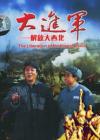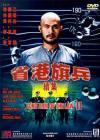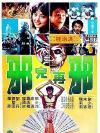The Great March - Liberation of Northwest China
After the victory of the three major campaigns including Liaoshen, the Nationalist Government refused to sign the peace agreement. Chairman Mao and General Zhu issued an order to march across the country. In Beiping (now Beijing), Peng Dehuai received the combat orders from Mao Zedong and Chief of the General Staff Zhou Enlai, launching a campaign to liberate the vast areas of five provinces in Northwest China: Shaanxi, Ningxia, Gansu, Qinghai, and Xinjiang. The warlords of the Nationalist forces stationed in Northwest China, Hu Zongnan, Ma Hongkui, and Ma Bufang, on one hand, resisted stubbornly, while on the other hand, each had their own agenda. Ma Jiyan, son of Ma Bufang, led his troops to attack Xianyang City, but Hu Zongnan, who had promised to send reinforcements, remained inactive, and Ma Hongkui also hesitated to advance, resulting in Ma Jiyan suffering heavy losses against our army. Subsequently, Peng Dehuai formulated a combat strategy to "pin down Ma's forces while striking Hu's forces, first Hu, then Ma." The five armies painstakingly built up by Hu Zongnan were completely annihilated within three days. Afterwards, the two Ma factions attempted to use natural barriers and strong fortifications to engage in a decisive battle with our army in Lanzhou. However, under General Peng's command, the PLA fought fiercely and successfully captured Lanzhou on August 26th. Tao Zhiyue, the commander-in-chief of the Nationalist forces in Xinjiang, and Bao'erhan, the chairman of the Xinjiang Provincial Government, announced their glorious uprising. Thus, the entire Northwest China returned to the embrace of the people.




